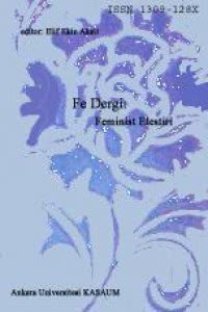Çokboyutlu Toplumsal Cinsiyetli Karşıkoyuşlar Çerçevesinde Doğu Avrupa'da Aktör Odaklı Bir Analiz Üzerine Değerlendirmeler: Toplumsal Cinsiyet ve Demokrasinin İstanbul Sözleşmesi Bağlamında Siyasallaştırılması, Andrea Krizsán & Conny Roggeband (Palgvare Macmillan, 2011)
Geçtiğimiz on yılda, toplumsal cinsiyet (eşitliği) karşıtı hareketler, Istanbul Sözleşmesini de hedeflerine aldılar. Bu inceleme, Andrea Krizsán ve Conny Roggeband’in Polonya, Bulgaristan, Hırvatistan ve Macaristan’da Sözleşme’ye karşı çıkan aktörleri ele alan karşılaştırmalı çalışmasını kavramsal ve açıklama çerçevesi ve temel çıkarımları acısından değerlendirmektedir. Eserin güçlü analiz kurgusu, muhalif aktörleri söylemsel çerçeveleri, stratejileri ve dönüşen ittifaklarıyla incelemektedir. Otoriterleşmenin siyasi bağlamı içerisinde, aktör-odaklı bu makro analiz, siyasallaşan Istanbul Sözleşmesi tartışmalarının şiddetle mücadelenin politika ve aktörlerine etkisini de değerlendirmektedir. Bu inceleme, çalışmada öne çıkan devletlerin kritik rollerine vurgu yaparken, diğer ülkelerdeki benzer tartışma ve süreçlerin incelenmesi için gerekli sorun alanlarına da dikkat çekmektedir
Locating the Opposition to Istanbul Convention in the Multilayered Dynamics of Gendered Challenges: Reflections on an Actor- Centered Analysis on Eastern Europe: Politicizing Gender and Democracy in the Context of the Istanbul Contention, by Andrea Krizsan and Conny Roggeband, (Palgrave Macmillan, 2
Over the past decade, anti-gender campaigns have been extended into politicized debates targeting the Istanbul Convention (IC) complicating and in some cases blocking its ratification. This review looks at the conceptual and explanatory framework and the inferences of Andrea Krizsan and Conny Roggeband’s comparative study focusing on the strategies and discourses of interlinked actors contesting the IC in Hungary, Poland, Bulgaria, and Croatia. The well-structured analysis of the IC debates looks at the timelines and the framings of contestations, and identifies a reconfigured relationship between state and societal forces. Contextualizing national debates under the erosion of democratic institutions, the actor-centered approach of the study also looked into which areas within the VAW policy were impacted by the contestations. This comprehensive study makes a valuable contribution to the literature on democratic backsliding, VAW policies, anti-gender mobilizations, highlighting the centrality of the state and the resilience of the women’s movement.
